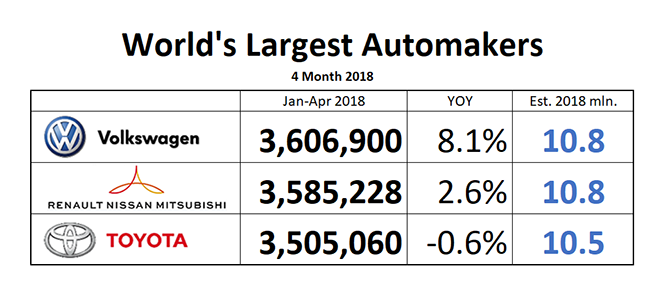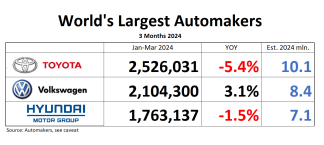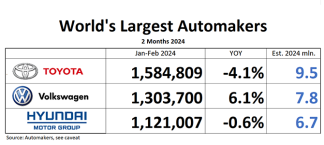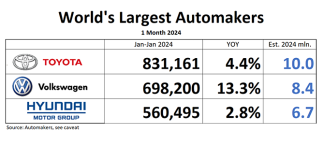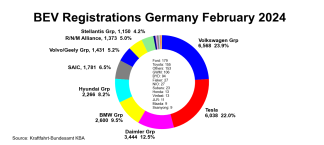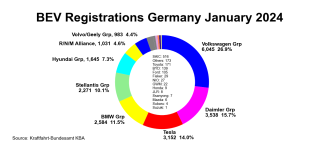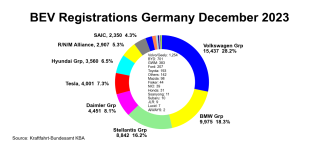The race for World’s Largest Automaker 2018 is getting more exciting than F1. Four months into the year Volkswagen Group edged-out last month’s front-runner Renault-Nissan-Mitsubishi, and it took the first place with a razor-thin 22,000 unit lead.
Buoyed by a nearly 13% growth in its largest country-market China, Volkswagen shows no signs of a post-dieselgate traumatic disorder predicted in a few corners of the media. Among the Top 3, Volkswagen leads with an impressive 8.1% growth for the year.
A softening Nissan did cost the Renault-Nissan-Mitsubishi Alliance its top spot. By end of April, Nissan was 3.7% behind Jan-April 2017 production. Nissan scaled back its output in Mexico by 15.4%, and in the U.S. by 12%. Worse is yet to come. Nissan is slashing vehicle production by as much as 20% in North America to cope with falling profitability in its biggest market U.S.A., the Nikkei wrote. Strongest Alliance performer again was Mitsubishi Motors, with its global auto-output up 21% by end of April.
Unperturbed Toyota already has cut back its production, most likely just-in-time for the softening U.S. market. In a softening market where sales must be bought with big discounts, a lead in output often is a sign of a loss in profits. Volkswagen already had to take thousands of Mexico-made cars off the U.S. market and dump them into Ukraine, where it “came to irregularities concerning the type approval documents,” the company confirmed.
Note: This analysis attempts to track production, not sales, because this is how the world automaker umbrella organization OICA ranks automakers.
Due to the different methodologies of their measurement, “sales” numbers have proven to be unreliable, and prone to ‘sales reporting abuses,” as recent scandals in the U.S., along with rampant “self-registrations” in the EU have shown.
At the same time, data reported by automakers are becoming increasingly hard to compare.
Toyota reports production only. Volkswagen reports “deliveries” to wholesale – which is, at least for this exercise, close enough to production. The Alliance numbers are a blend of production data reported by Nissan and Mitsubishi, and deliveries reported by Renault.
